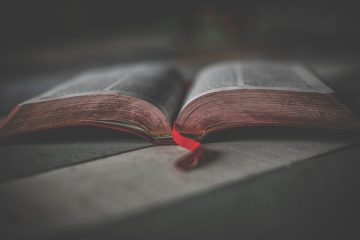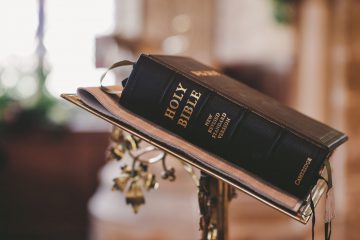I have had a very hard time writing this post! I believe this is because it’s such an ingrained concept to me, so it’s tricky for me to put words on it. I’ve also thought of it as “easy” or “obvious”, but when it comes down to it, it’s anything but. It’s very complex to tell a person they Are Who They Are.
The crux of this is, you can’t choose to be homosexual just as much as you can’t choose to be heterosexual. It’s who you are, just as much as your race or the shape of your face or the color of your hair. But it’s so much more complex than that.
I believe you’re born somewhere on the spectrum of sexuality. Biologically, you have a tendency to sway one way or the other. But also, life/environment/culture/so many things can influence your sexuality.
This is what makes it so tricky for many Christians to accept someone as being gay. They believe it’s a choice that person has gone out and made, they could just as easily choose to be straight (as perhaps this person has done themselves) but instead this person is deciding to “sin” by being gay.
While trying to find words for my concept of why this is inaccurate, I came up with a scale. You can either be a 1 (completely heterosexual) or a 10 (completely homosexual) or anywhere in between.
I thought I was thinking up this brilliant concept to explain why you can’t flip a switch to change your sexuality. But I was wrong, as my good friend Ben pointed out. I was not coming up with a brilliant concept – that concept has already been documented and studied by Alfred Kinsey and it’s called the Kinsey scale.
I was wrong on a few points (Kinsey bases the scale from 0-6, includes decimals, and accounts for asexuality as an X). Also, this scale was thought up in the 1940s and has been expanded and studied by so many new scientists, it’s frankly at this point mostly outdated. Sexuality isn’t a one-dimensional scale, it’s three or four dimensions, with gender and other influences playing a role as well.
I highly recommend doing more research if this is something that interests you, but for the point of my simple blog, let’s just say you have a number. Maybe you’re born a 1.57 or a 2.33. You’re mostly interested in the opposite sex, but occasionally someone of the same sex will catch your eye. There is absolutely nothing wrong with this, it’s just your number.
However, I believe these individuals are the individuals most dangerous when it comes to understanding sexuality and Christianity. Arguably most (if not all) individuals fall somewhere in the middle of the scale and few are the two extremes of a full 0 or a full 6. Just look at a random number generator generating any number with 2 decimal places between 0 and 6. You will go a long time before you get the 0 or the 6 dead on.
These individuals are dangerous when combined with repressive Christianity because they see their homosexual thoughts as fleeting “sinful” thoughts that they can control and suppress. They think all individuals are like this, they are not unique, and they are better and less “sinful” because they can control these thoughts.
What they’re not understanding, is that they might be 1-2, but there are other people that are 4-6. Most or all their attractions are for members of the same sex. And there is nothing wrong with that either. They could in theory be attracted to someone of the opposite sex, but not easily.
Also, this number changes during your life, but gradually. You might be a 1.45 one day and a 1.52 the next, but you’re not going to be a 5.89 the day after.
So, what does this all really mean?
You can’t choose who you are. God made you somewhere on this scale and is with you as it changes, flexes, and grows. Be empathetic and realize that those around you are somewhere else on this scale. No one is experiencing the exact experiences you are and no one’s feelings are identical to your own. Empathy is important.
Once when I was 16, I was driving with my good friend Jason and I asked him if he had decided to be gay. I was ignorant and didn’t see this question as a big deal. He was immediately floored and wondered how I could ask such a thing. How could I ask if he decided to be bullied? How could I ask if he decided to have the person whom he loved be incapable of loving him back because he was the “wrong” gender? How could I ask if that was a decision he had made? Who would choose to be looked down on and bullied and hated?
This was a big deal for me. His life was hard, but he was going to make the most of it. He wasn’t going to hide who he was despite how mean and cruel teenagers (and adults) can be. He didn’t choose that life, but he was making the best of it.
Now, if you still believe homosexuality is a sin, this might not influence you much. You might think, sure, okay, people are a specific way, but it’s just like any other sin and God gives us all sins to work through.
Yes, some people might be naturally more sinful or are put in more frequent situations where they can be tempted by sin. Some people’s life experiences lead them to sin.
But no one is flat out born more of a sinner than anyone else. If we’re all born sinners, we are all the same level of sinner. And people are born on this spectrum. And God makes no mistakes. So, what does that tell you?
Being gay is not a sin.
Future posts we’ll explore how people have misinterpreted the Bible to fit with their homophobic beliefs. We’ll go through each passage of the Bible that is being used against homosexuality and show how they have been translated inaccurately (some within only the last 100 years even). Are you using the Bible the same way a racist might have in the 1920s? Stick around to find out and figure out how you can be more loving and accepting as Jesus wants us to be.
Here are some great articles I read while preparing this post:


